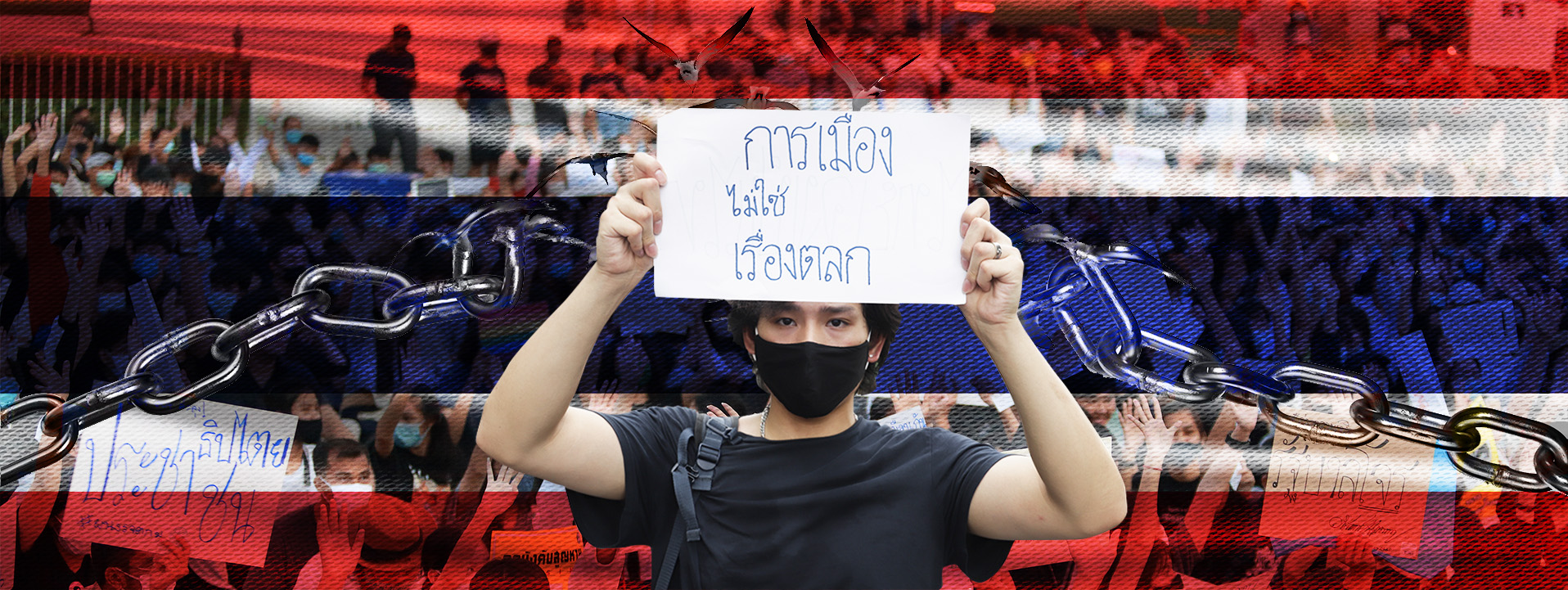The Covid-19 pandemic has sent nations reeling from its unprecedented impact, which includes many economic and social setbacks. Making matters worse are the emergency laws enacted by some states in response to the crisis. These laws wreak havoc on fraying democracies in nations that are tottering down the road to authoritarianism.
Thailand is no exception. The Thai government imposed a one-month state of emergency on March 26, 2020, saying that such a measure is essential for outbreak control. The decree centralized governing power in the hands of an ad hoc committee headed by Prime Minister Prayuth Chan-ocha. It also prohibited the spread of misinformation as well as the conduct of public gatherings deemed to cause “unrest” or increase the risk of virus contagion.
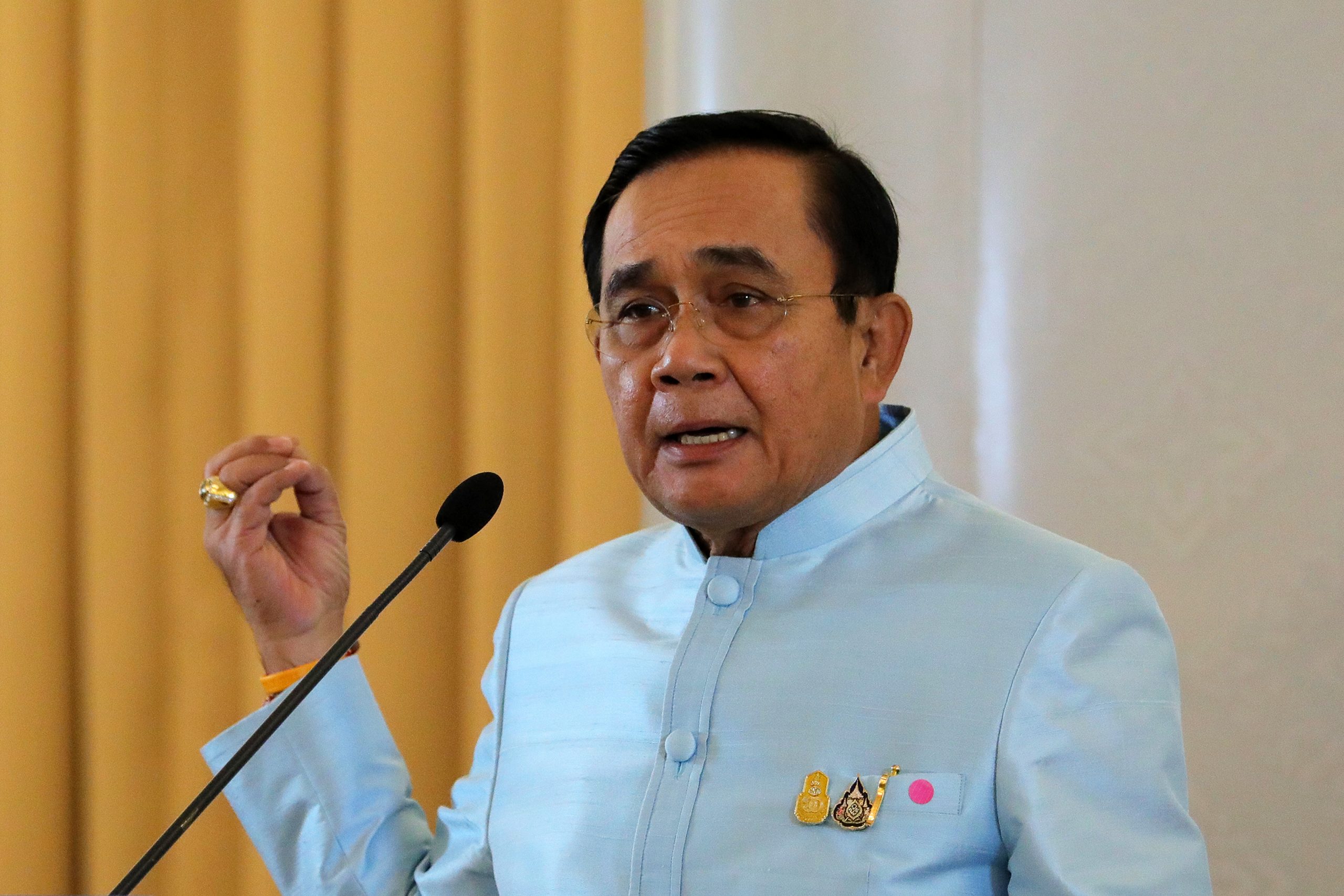
Speculations are rife that Prime Minister Prayuth Chan-ocha extended the country’s state of emergency—for the fifth time—until the end of September to clamp down on spreading protests.
Since then, despite the country’s recording zero local transmission of the coronavirus in the past three months, the emergency decree has dragged on. Its effectivity has been extended for the fifth time until Sept. 30, 2020.
Thailand’s youth, on the other hand, have been unperturbed by the ban on public gatherings. Defying government-imposed social restrictions, they have been organizing mass protests since mid-July. They have demanded three main reforms: dissolve parliament and conduct new elections; end judicial harassment of pro-democracy activists; and rewrite the Thai constitution.
Waves of protests
Waves of almost daily protests surged in different parts of the country. The protest on Aug. 16, 2020, which was attended by at least 10,000 people, is considered by far the biggest anti-government demonstration since the 2014 coup.
Amid the widespread protests, the crackdown, too, continues unabated. Under the guise of public health, more activists and political dissenters are being persecuted for their peaceful call for democracy and monarchy reform.
Section 9 of the regulation issued by Thailand under its 2005 emergency decree prohibits persons “to assemble, carry out activities, or gather at any place that is crowded, or to commit any act which may cause unrest.” Violators may face two years in jail and/or be fined 40,000 baht (about US$1,278).
Lawyer Pavinee Choomsri, a lawyer from the Thai Lawyers for Human Rights (TLHR), said the crackdown against protesters was first reported in May 2020. Political activist Anurak Jeantawanich was the first person to be charged in violation of the decree. On May 15, he organized the commemoration event for Maj. Gen. Khattiya Sawasdipol, a soldier killed during the 2010 military crackdown on the United Front for Democracy against Dictatorship, also known as “the Red Shirts.” To date, no one has been held to account for the deadly crackdown.
A tool to quash dissent
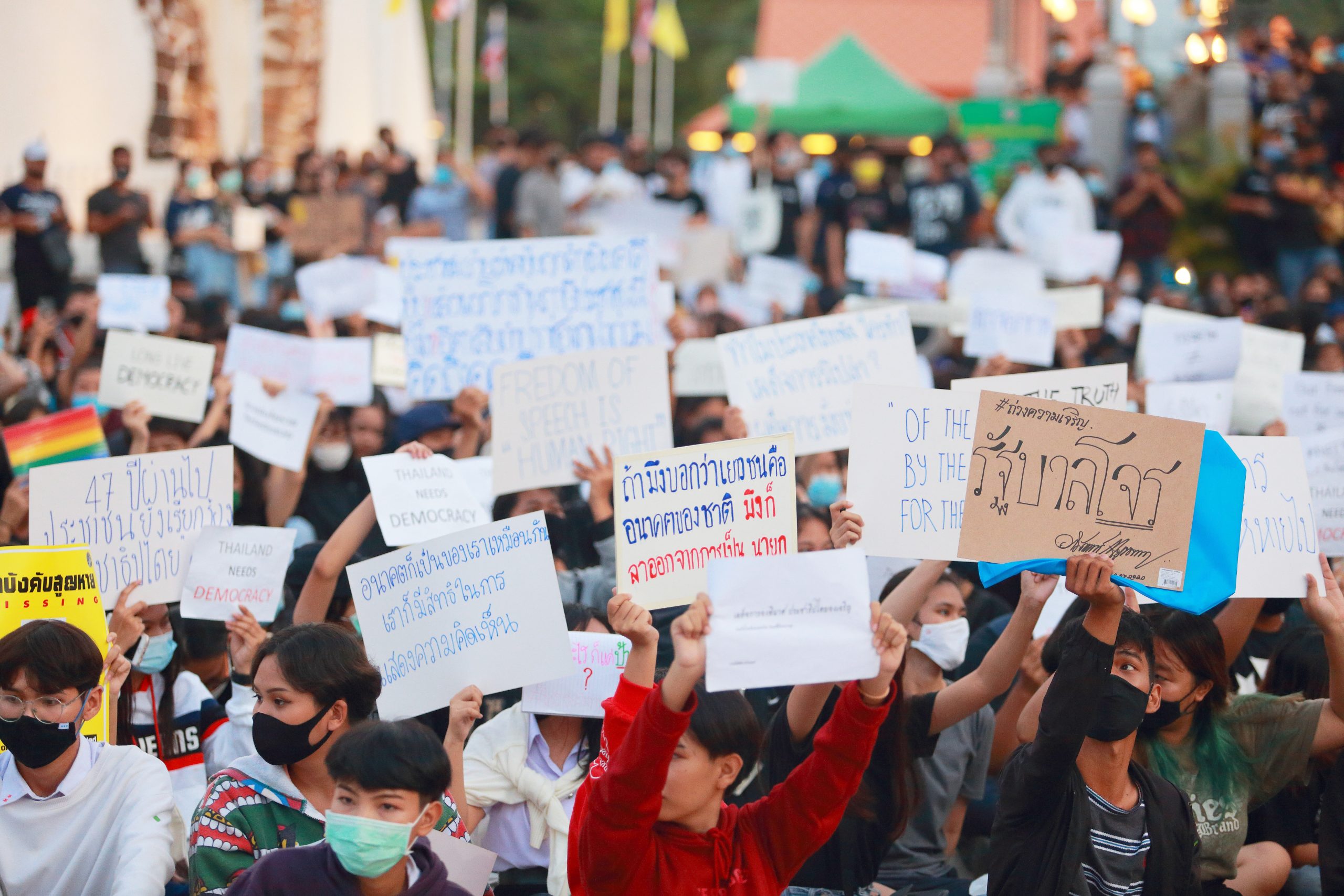
Waves of protests, led by Thai students, have surged in different parts of the country.
In the succeeding months, the persecution of protesters intensified as more political commemorations were organized. In May and June, cases were lodged against 23 protesters for violating the decree. They were charged for taking part in or organizing a public event that was attended by many people, thereby increasing the risk of virus transmission.
Notably, every case relates to a protest where the main issue directly concerns the legitimacy of the government and its supporting members: the 2010 Red Shirts crackdown; the 2014 coup commemoration; the disappearance of a Thai activist in exile in Cambodia; and the 1932 democratic revolution.
Arbitrary enforcement
Furthermore, the arrests shed light on the Thai police’s arbitrary, questionable, and selective enforcement of laws related to the rights to freedom of expression and to peaceably assemble. According to seasoned activist Chonthicha “Kate” Jangrew, there are two types of police during the public gatherings: the “dovish” and the “commander class.”
The police who belong to the first group approach the protesters nicely. They agree that the continuing implementation of the emergency decree is questionable because there has been zero local transmission in recent months. Nevertheless, they must control the protest because their “higher-ups” told them to do so.
On the other hand, the police who belong to the second group invoke the emergency decree in order to stop the protest from happening. They do this regardless of the public health measures being practiced by the protesters.
Jangrew pointed out that the decree only forbids high-risk gatherings and that the protests were done with safety measures in place. Still, the authorities would insist that there is a law and it cannot be changed.
“This pointed out the arbitrary power enforcement [of policies] which [can lead to] the persecution of a certain group,” said Choomsri. She added that what should and should not be done remain unclear to many, and it takes a court decision to determine what actions will be allowed under the emergency decree.
Violating basic rights
As the protests continue, the Thai government has also begun wielding the Sedition Law and the Communicable Diseases Act in its political crackdown.
As stated in Section 116 of the Criminal Code, the Sedition Law is intended to punish individuals who instigate to violate the Thai constitution by violently bringing about a change in the laws of the country or the government; raising unrest and disaffection among the people; or causing the people to transgress the law of the country. It has been used to criminalize many actions—including peaceful assemblies or the display of banners—that criticize the Thai military, junta government, or the monarchy.
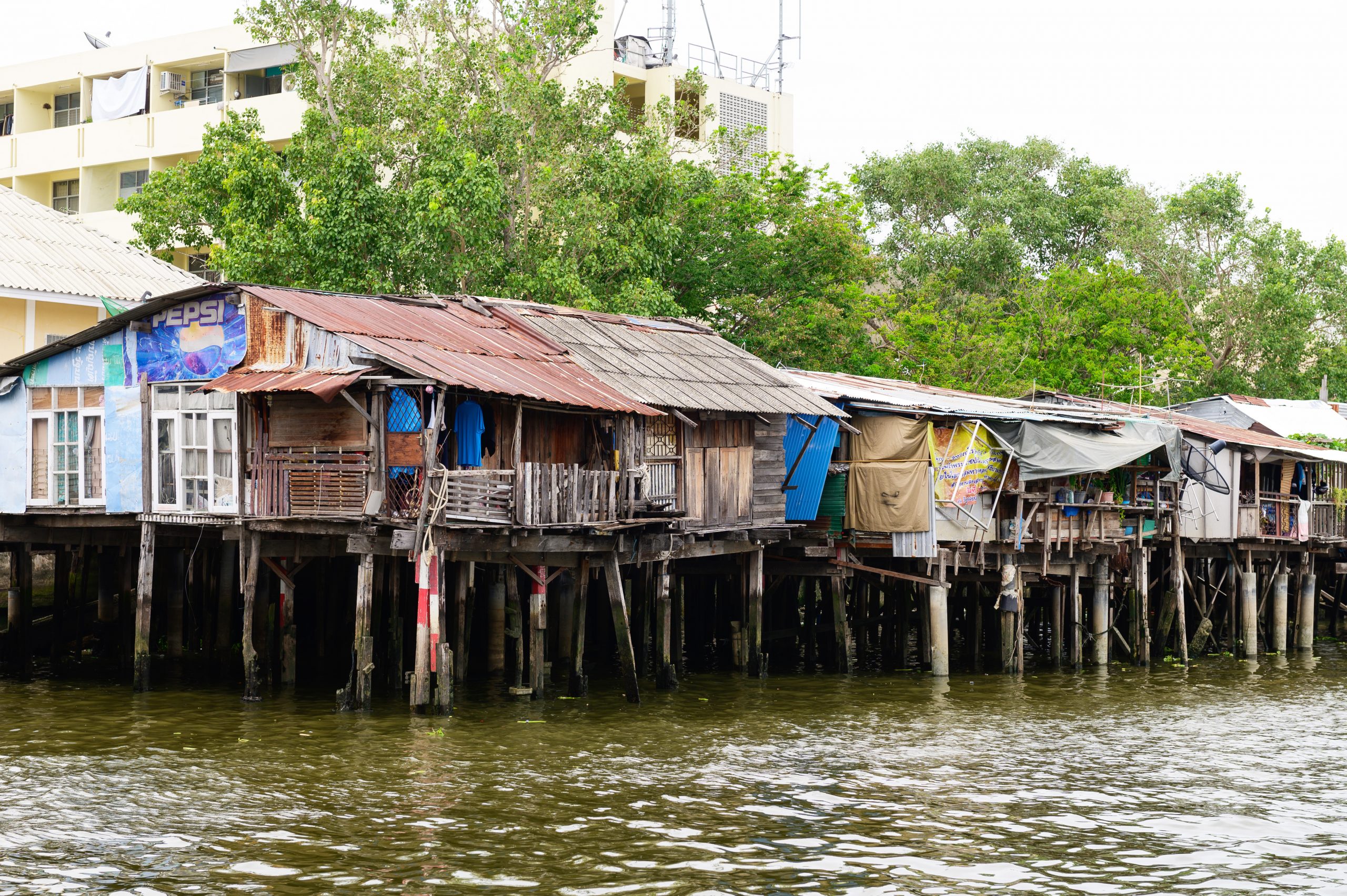
Covid-19 has worsened an already dire situation for Thai households “facing droughts, stagnant wage growth, and rising poverty,” says the World Bank. Amid the ongoing pandemic and with no vaccine in sight, the civil court has ruled that Covid-19 prevention should be prioritized over the protection of the Thais’ right to freedom of assembly.
As of Aug. 25, the police have listed at least 31 performers from the July 18 protest in their watchlist. Fifteen of them were slapped with seven charges, including violating the emergency decree and the Communicable Diseases Act. Four were also accused of sedition, on top of the seven charges. Moreover, some protest leaders were also repeatedly charged of the same offense over time.
Meanwhile, attacks against the freedom of speech and expression were also reported in at least 109 schools nationwide, as more students began voicing their support to the protesters’ demands by raising three fingers or putting on white ribbons as an act of resistance. In response, teachers and school administrations have hit the students and seized their ribbons. They have threatened the students with expulsion. Some students were told to drop out of school first before expressing their mind.
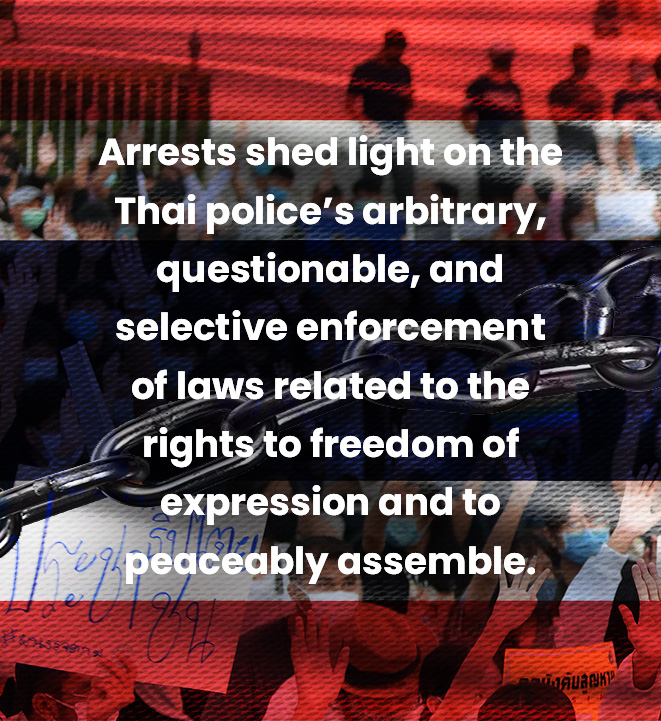 Unwelcome visitors
Unwelcome visitors
Besides being slapped with legal charges, many activists also reported that they have been followed, contacted, or visited by the police. In June, for instance, people in 15 provinces tried to organize an event to commemorate the People’s Party’s 1932 democratic revolution. Police officers in plain clothes visited the participants’ homes, armed with a warning call.
In a similar event in Bangkok, the first People’s Party Declaration—which highlights the incompetence of the absolute monarchy and the need for a revolution to set things right—was read. As one of the event’s organizers, Jangrew later received a warning call from the police.
Jangrew, a member of the House of Representatives’ ad hoc committee on human rights violation and harassment of citizens, demanded an explanation. She was informed that the police were following the protesters to deter them from protesting.
Police intimidation has increased as more people have joined the call for political and monarchy reform. In some visits, individuals were even made to sign a memorandum of understanding pledging that they will not criticize the monarchy again. As of Aug. 4, 2020, TLHR reported that five out of at least 76 planned activities could not be held due to intervention by the authorities.
Choomsri said the monitoring has been happening even before the state of emergency was declared and despite the absence of a law warranting it. Still, she said the police can also argue that there is no legal obstruction preventing them from doing it, unless the court rules otherwise. The emergency decree only gave them more excuse to conduct their unwanted visits.
Choomsri assailed the extension of emergency decree, saying it is no longer necessary and it would have a negative impact on the rule of law in Thailand. She said that the Communicable Diseases Act suffices to curb the spread of disease.
“It is very clear that this government is still governing like it did during the junta days, centralizing the power at the prime minister or the government too much,” she said. Choomsri argues for a return to the regular principle: “Law enforcement must not overrule the Thai constitution. Stop the emergency decree and allow the people to exercise their freedom.”
Unfortunately, the odds are not in the activists’ favor. Last July, the civil court issued a landmark decision to dismiss a petition from a civil society network asking for the protection of their right to freedom of assembly. Amid the ongoing pandemic and with no vaccine in sight, the court ruled that Covid-19 prevention should be prioritized over the conduct of the demonstration. ●
Yiamyut Sutthichaya is a correspondent for Prachatai English, an online news website in Thailand. He covers international issues, local press freedom, and human rights.










